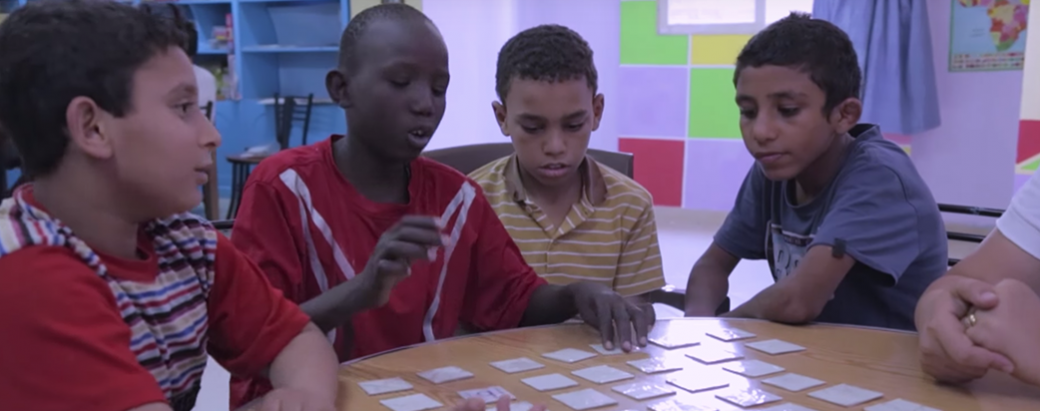
About the Project
This project is one of the 2014 WISE Awards winners.
The project works with street children (including families living and working on the street and others at risk), one of the most marginalized sectors of society. The aim is to provide child-friendly education and life skills, including road safety awareness and reproductive health focusing on hygiene, HIV, and other STDs. The project seeks to provide the target group with a path away from the streets through non-formal education (NFE) at the Drop-In Center (DIC) and the Transitional Home provided through the Child-Friendly School (CFS).
The aim of the CFS is to reintegrate children into the public school system and society at large and therefore de-stigmatize them. A progressive non-formal education project was introduced in 2012 using innovative training tools. These focused on techniques of working with children of varying capacities and levels of learning, monitoring and evaluation, learning through play, and self-learning. The total number of children in the CFS was 37 in 2012 and 30 in 2013. Thirty-three children were reintegrated into public schools.
Context and Issue
Solution and Impact
Through non-formal education around life skills children can develop a desire to learn and acquire the tools to protect themselves on the streets and support their social reintegration. FACE trains them to become peer educators who can spread their learning and skills. CFS seeks to build confidence and skills among young people so they are able to escape the cycle of street living and be reintegrated into the public schools .
Many young people have benefited from the life skills program implemented on the streets and in the DIC. Since the beginning of the project the outreach team has provided Life Skills to 19,661 contacts. Nearly 27,800 have accessed literacy education on the streets while in the DIC 10,372 contacts received life skills education, and 9,904 contacts received Non-Formal Education. A hundred and thirteen children attended the CFS. Of these, 33 children were reintegrated into the public school system.
Future Developments
In the coming years the project seeks to:
- Open a new DIC in Cairo to double the number of beneficiaries receiving services, literacy education, life skills and educational support;
- Advance peer education, giving children the tools and materials to teach one another life skills and foster an ability to pass on knowledge and skills;
- Train other organizations working with street children in life skills;
- Create a handbook for educators on NFE techniques specifically for the target group;
- Raise awareness amongst public school educators within its network on CFS teaching techniques and the target group through stakeholder meetings.
The project aims to achieve this by:
- Choosing willing and able longer-term beneficiaries to begin peer education; develop tools and materials for them to use in lessons and for life skills on the streets; enable participation of beneficiaries in class and in the DIC using their skills;
- Training three organizations working with the target group in life skills over 12 months;
- Working with the NFE consultant on curriculum, staff training and compilation of materials to create a handbook;
- Building strong relationships with five local schools, inviting them to attend CFS sessions and stakeholder meetings and open days three times per year.


